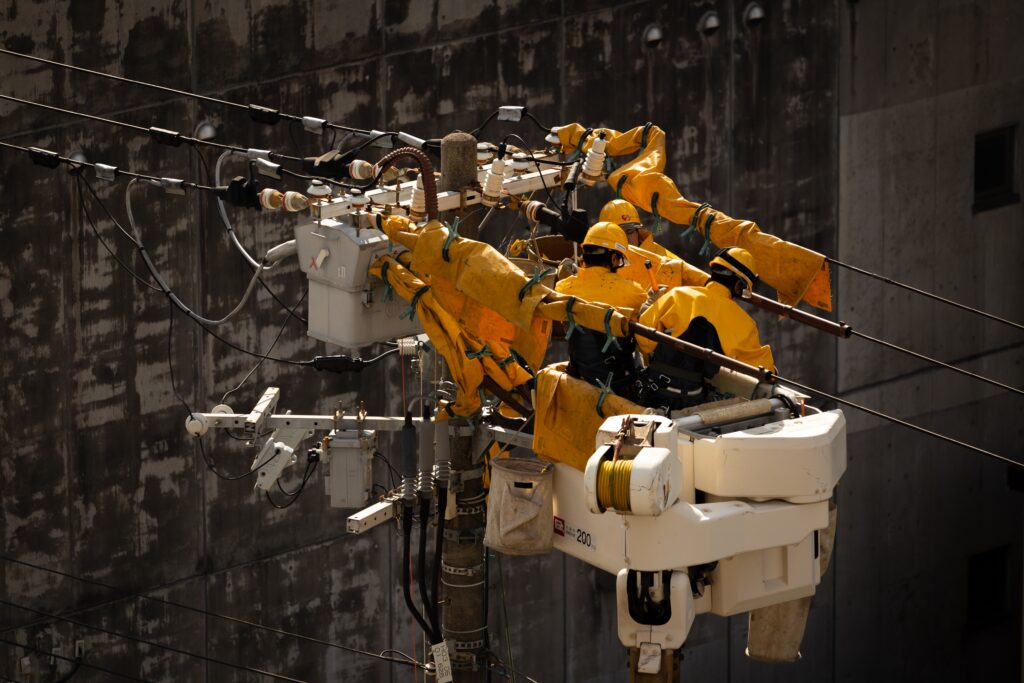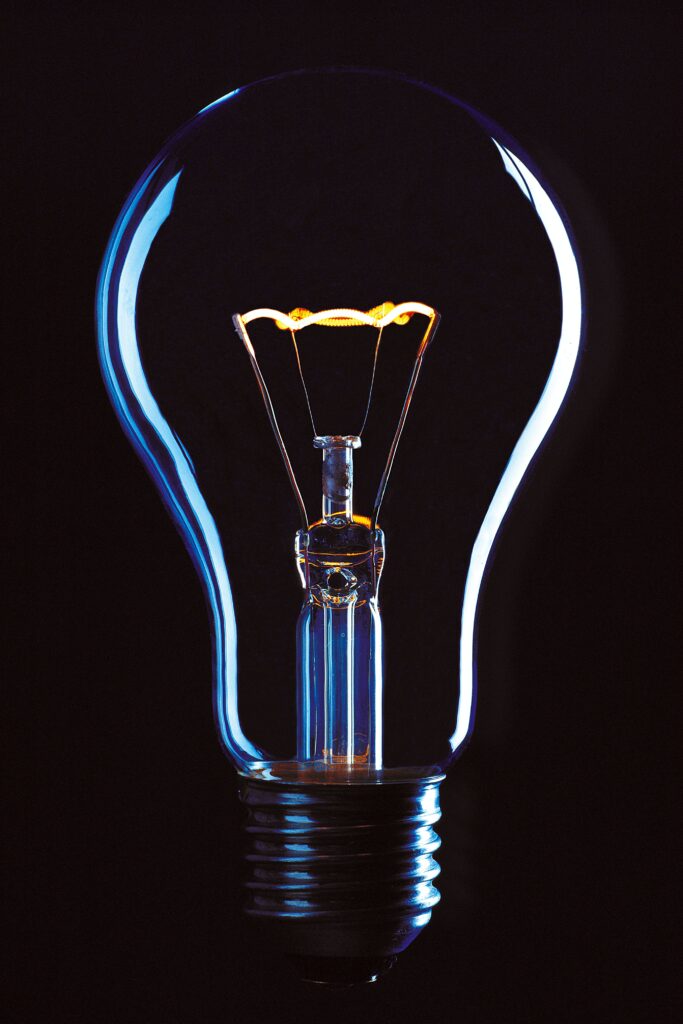Imagine being in a situation where your power suddenly goes out, leaving you in complete darkness. You frantically search for a solution and wonder if a 3000 watt generator can save the day. Will it be powerful enough to run your house? In this article, we will explore the capabilities of a 3000 watt generator and determine whether it can fulfill all your household electrical needs. So, let’s shed some light on the subject and find out if this generator is the hero you’ve been looking for!

Understanding the Capacity of a 3000 Watt Generator
What is a Watt?
Before we dive into discussing the capacity of a 3000 watt generator, let’s understand what a watt actually is. A watt is the unit of power, representing the rate at which energy is used or generated. In simple terms, it measures how much work can be done in a certain amount of time. When it comes to generators, watts determine the electrical load that the generator can handle.
How do Generators Work?
Generators work by transforming mechanical energy into electrical energy. They consist of an engine, typically powered by gasoline or propane, that drives an alternator to produce electricity. The alternator generates an electrical current that is then converted into usable power. In the case of a 3000 watt generator, it means the generator can produce up to 3000 watts of electrical power.
What does 3000 Watts Equate to?
Now that we understand what a watt is and how generators work, let’s explore the capacity of a 3000 watt generator. A 3000 watt generator can provide a moderate amount of electrical power. To put it into perspective, it can supply enough energy to meet the needs of various household appliances and devices. However, it’s important to note that not all appliances require the same amount of power, which brings us to the next section.
Assessing Your Home Energy Needs
List of Common Household Appliances and their Wattage
To gauge whether a 3000 watt generator can run your house, it’s crucial to assess your home energy needs. Understanding the wattage requirements of your appliances and devices is the first step. Here’s a handy list of common household appliances and their approximate wattage:
- Refrigerator: 600-800 watts
- Air Conditioner (10,000 BTU): 1500 watts
- Television: 100-400 watts
- Microwave: 700-1200 watts
- Laptop/Computer: 60-300 watts
- Lights (LED bulbs): 10-20 watts
- Electric Stove: 1500-3000 watts
- Washing Machine: 500-1500 watts
- Electric Heater: 1000-1500 watts
These values can vary depending on the specific make and model of the appliances, but they provide a general idea of the power required for each.
Calculating Your Home’s Total Energy Consumption
To determine whether a 3000 watt generator is sufficient for your home, it’s important to calculate your total energy consumption. This can be done by adding up the wattage of all the appliances you intend to power simultaneously during an outage. Remember to consider any additional electronics or equipment you may need to power, such as phones, routers, or medical devices.
For example, let’s say you have a refrigerator (700 watts), a few LED lights (40 watts), a laptop (80 watts), and a microwave (1000 watts). The total wattage would be 1820 watts. In this scenario, a 3000 watt generator would comfortably handle the load.
Importance of Prioritizing Essential Appliances
While the wattage calculations help determine the generator’s capacity, it’s vital to prioritize essential appliances during power outages. Focus on powering appliances that are necessary for your basic needs and safety, such as refrigerators, lights, communication devices, and medical equipment. By giving priority to these appliances, you can ensure that a 3000 watt generator will be sufficient for your household.
Challenging Assumptions: Can a 3000 Watt Generator Run a House?
Can It Power an Entire House?
It’s important to address one common assumption: a 3000 watt generator may not be able to power an entire house at once. The capacity of a 3000 watt generator is limited and may not be enough to handle the simultaneous power demands of larger homes or households with high energy consumption.
While it can handle the power requirements of several appliances, it’s crucial to prioritize and manage the load to prevent overloading the generator and causing potential damage. We’ll delve into load management further in a later section.
Can It Handle the Peak Load?
Peak loads occur when certain appliances or devices require a surge of power to start, often called the starting wattage. This is higher than the running or continuous wattage required to keep the appliance running. It’s worth noting that some appliances, such as refrigerators, air conditioners, and sump pumps, have a higher starting wattage.
A 3000 watt generator may be able to handle the running wattage of an appliance, but it might struggle with the initial surge of power needed to start it. While it depends on the specific appliances in your home, it’s wise to check their starting wattage and ensure it falls within the generator’s capacity. If the starting wattage is significantly higher than the running wattage, you may need to consider alternative power solutions or a larger generator.
Effects of Overloading the Generator
Overloading a generator can have serious consequences. If you surpass the generator’s wattage capacity, it can lead to voltage fluctuations, tripped circuit breakers, and potential damage to both the generator and connected appliances. In severe cases, overloading a generator can even create a fire hazard.
To avoid overloading, it’s essential to calculate your energy needs accurately, prioritize essential appliances, and practice load management. By doing so, you can maximize the effectiveness and safety of a 3000 watt generator.
Pros and Cons of Using a 3000 Watt Generator for Home
Portability and Convenience
One of the advantages of a 3000 watt generator is its portability and convenience. These generators are often designed to be compact and lightweight, making them easy to move around and store. Their smaller size allows for greater flexibility in placement and transportation, providing convenience during emergencies or outdoor activities.
Cost-Effectiveness
Compared to larger generators, a 3000 watt generator tends to be more cost-effective. The upfront cost of purchasing a smaller generator is generally lower, making it a more affordable option for many homeowners. Additionally, these generators consume less fuel due to their smaller size, resulting in lower ongoing fuel costs over time.
Possible Limitations for Large Households
While a 3000 watt generator has its advantages, it’s important to consider potential limitations, especially for larger households or those with high energy demand. If your home has a multitude of power-hungry appliances or a high number of occupants, a 3000 watt generator may not be sufficient to meet all your power needs simultaneously. In such cases, you may need to consider alternative power solutions or opt for a higher-capacity generator.

When Does a 3000 Watt Generator Make Sense?
Ideal Scenarios for Using a 3000 Watt Generator
A 3000 watt generator is well-suited for various scenarios, especially for smaller homes, apartments, or recreational purposes. It can effortlessly handle the power requirements of essential appliances during power outages, providing comfort and convenience when you need it the most.
They are also popular choices for camping trips, outdoor events, or as backup power sources for small businesses with limited power needs. Their compact size and relatively quiet operation make them suitable for powering electronics, lighting, and small tools in these situations.
When It’s Not Enough: Larger Homes and High Energy Demand
As mentioned earlier, a 3000 watt generator might not be able to meet the power demands of larger homes or households with high energy consumption. If your home has numerous power-hungry appliances or a larger square footage, you may want to consider a generator with a higher wattage rating.
It’s crucial to accurately assess your energy needs and determine whether a 3000 watt generator can sufficiently power your home. If it falls short, exploring alternative power solutions or opting for a larger generator might be the better course of action.
Impact of a 3000 Watt Generator on Energy Efficiency
Benefits for Energy Saving
Using a 3000 watt generator can have positive implications for energy efficiency. By providing power specifically to essential appliances and devices, you can avoid wasteful energy consumption. This selective approach helps conserve energy and promotes responsible usage during power outages.
Understanding the Concept of Load Management
Load management refers to the strategic management of power consumption to prevent overloading a generator. This involves prioritizing essential appliances and devices and distributing the load more efficiently. By actively managing the load, you can optimize the generator’s performance and ensure it can handle the connected appliances within its capacity.
Practical Energy Efficiency Strategies with a 3000 Watt Generator
To enhance energy efficiency with a 3000 watt generator, consider implementing the following strategies:
- Use energy-efficient appliances: Opt for energy star-rated appliances that consume less power.
- Utilize LED lighting: Replace traditional incandescent bulbs with energy-efficient LED bulbs, which consume significantly less wattage.
- Practice load management: Prioritize essential appliances and avoid running unnecessary devices during power outages.
- Consider alternative cooking methods: Use alternative cooking methods like gas stovetops, grills, or solar-powered cookers to reduce electricity consumption.
By adopting these strategies, you can maximize energy efficiency and make the most of your 3000 watt generator.

Maintenance and Safety Considerations for 3000 Watt Generators
Routine Maintenance Practices
To ensure the longevity and reliable performance of a 3000 watt generator, routine maintenance is key. Regularly following these practices can help minimize the risk of breakdowns and extend the lifespan of your generator:
- Check and change oil: Regularly inspect the generator’s oil levels and change it as per the manufacturer’s recommendation.
- Replace filters: Clean or replace air filters when necessary to prevent dirt and debris from affecting the generator’s performance.
- Keep it clean: Regularly clean the generator to remove any dirt, dust, or debris that may hinder its operation.
- Test regularly: Run the generator periodically, even when not in use, to keep its engine in good condition and ensure it starts when needed.
- Schedule professional servicing: Schedule regular maintenance with a qualified technician to perform more in-depth inspections and address any issues.
Safety Measures When Operating a 3000 Watt Generator
Operating a generator safely is of utmost importance to prevent accidents or damage. Follow these safety measures when using a 3000 watt generator:
- Read the manual: Familiarize yourself with the generator’s manual and understand its specific operating instructions and safety guidelines.
- Proper ventilation: Ensure the generator is placed in a well-ventilated area, as generators emit carbon monoxide, which can be deadly if inhaled.
- Grounding: Connect the generator to a proper grounding system to reduce the risk of electric shock or damage due to electrical fault.
- Keep it dry: Protect the generator from moisture or rain by using a waterproof cover or housing.
- Cord safety: Use appropriate extension cords rated for generator use and avoid overloading the cords by plugging in excessive appliances.
By adhering to these safety measures, you can ensure the safe and efficient operation of your 3000 watt generator.
Alternative Home Power Solutions
Larger Generators
If a 3000 watt generator falls short of meeting your power needs, you may consider investing in larger generators with higher wattage capacities. These generators can provide more electrical power and handle the demands of larger homes or high-energy consumption households. However, they may come with increased costs, larger footprints, and louder operating noise.
Renewable Energy Sources
For homeowners seeking cleaner and more sustainable energy solutions, renewable energy sources like solar panels or wind turbines are worth considering. These systems harness energy from the sun or wind to generate electricity, significantly reducing reliance on traditional fuel-powered generators. While the upfront costs for installing renewable energy systems can be higher, they offer long-term energy savings and benefit the environment.
Battery-Based Backup Power Systems
Another alternative power solution is a battery-based backup power system. These systems store electrical energy in batteries, allowing for on-demand power during outages. While they may have lower wattage capacities, they are ideal for providing power to essential appliances, such as refrigerators, lights, and communication devices. Battery-based backup power systems can be integrated with renewable energy sources for a more sustainable and reliable power solution.
Cost Analysis: Purchasing and Operating a 3000 Watt Generator
Upfront Cost of a 3000 Watt Generator
When considering the purchase of a 3000 watt generator, the upfront cost is an important factor. Generally, these generators are more budget-friendly compared to larger counterparts with higher wattage capacities. However, prices can still vary depending on the brand, features, and model.
Potential Fuel Costs
The ongoing fuel cost is another aspect to consider. Smaller generators like the 3000 watt models tend to consume less fuel due to their lower power output. This translates into potential savings over time, as you will need to refuel the generator less frequently. However, fuel costs can fluctuate depending on the fuel type and market conditions.
Maintenance Expenses Over Time
Maintenance expenses are also an important consideration. Regularly servicing and maintaining a 3000 watt generator may involve costs for oil changes, filter replacements, and professional inspections. However, routine maintenance is crucial to ensure the generator’s longevity and reliable performance.
It’s essential to weigh the upfront cost, potential fuel costs, and ongoing maintenance expenses to determine the overall cost-effectiveness of a 3000 watt generator for your home.
Conclusion: So, Will a 3000 Watt Generator Run a House?
Recap of the Information Discussed
In conclusion, a 3000 watt generator can indeed run a house, given that the power requirements are properly assessed and managed. Understanding the wattage needs of your appliances, practicing load management, and prioritizing essential devices are crucial steps in determining whether a 3000 watt generator is sufficient for your home.
We have explored the capacity of a 3000 watt generator, its pros and cons, as well as alternative power solutions for larger homes or higher energy demand. Factors such as portability, cost-effectiveness, and energy efficiency have been discussed, shedding light on the practical considerations of owning a 3000 watt generator.
Weighing the Pros and Cons
It’s important to weigh the pros and cons before making a decision. A 3000 watt generator provides a balance between power output, portability, and cost-effectiveness. It can comfortably handle the power requirements of essential appliances during a power outage, making it a reliable backup power option for many households.
However, it does have limitations when it comes to running an entire house with high energy demands. Larger homes or households with numerous power-hungry appliances may need to explore larger generator options or alternative power solutions.
Final Thoughts on Suitability of a 3000 Watt Generator for Home Use
Choosing the right generator for your home requires careful consideration of your energy needs, budget, and preferences. A 3000 watt generator is a versatile option that suits the needs of many homeowners, providing reliable backup power during outages or for recreational purposes.
Ultimately, whether a 3000 watt generator is suitable for your home will depend on factors such as the size of your home, the number of appliances you intend to power simultaneously, and your overall energy consumption. By assessing these factors accurately and prioritizing essential appliances, you can determine whether a 3000 watt generator is the right choice for your household.




